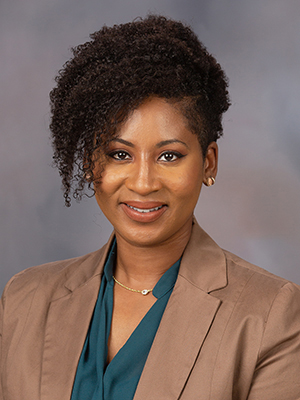Six tips to help children navigate prolonged COVID-19-induced isolation
Because of federal and state guidelines related to COVID-19, many parents may be home instead of at the office, children are home from school, and in the space of just a few days, life for many has changed drastically.
Here are six tips from experts at the University of Mississippi Medical Center to help families adjust:
• Explain the situation.

Explaining to children the need for social distancing to reduce the pandemic’s spread is important, said Dr. Philip Merideth, a professor of psychiatry at UMMC.
“For those in your care, explain the facts to them in terms they can understand, and make a plan with them for daily activities,” Merideth said. “All ages feel better when they are needed and useful. Everyone is needed now to do their part to flatten the curve and decrease the spread of the novel coronavirus.”
• Make routines routine.

Families coping with these changes can benefit from the familiarity of routines, said Dr. Susan Buttross, a professor of child development at UMMC and principal investigator of the Mississippi Thrive! Child Health Development Project.
“We are in a ‘new normal,’ and this might last a few months,” Buttross said. “In times like these, children, and really everyone, can benefit from schedules and routines.”
Whether it is a handwritten list or one designed on a computer, a daily schedule will help everyone in the household, she said.
“Children are comforted by routines,” Buttross said. “There is a temptation when at home to relax and play like it is a Saturday, but it can’t be a lazy Saturday every day. Set a schedule of when you will get up, get dressed, eat meals, learn and play.”
Buttross advises making the schedule something the whole family can see and including input from everyone.
“Have a time to wake up each day, get dressed and have breakfast,” Buttross said. “Make times for reading, lessons from your school district and for play.
“Screen time can be included, but don’t let electronics take over your child’s waking hours.”
• Limit screen time.
The American Academy of Pediatrics recommends limiting screen time for children ages 2 to 5 to no more than an hour a day. For children ages 6 and older, the AAP recommends setting a consistent limit on time spent using electronics such as television, video games and computers, and on the types of content children see.
To create an electronic media plan for your family, visit the AAP website at www.healthychildren.org.
Buttross encourages parents to use time at home with children as learning time.
“Get creative,” she said. “Getting dressed and putting shoes on the right feet can be a learning experience for a young child. Include your older children when you’re cooking. Showing them the difference between a cup and half-cup while making a recipe together is actually a math lesson, even if cooking with you seems like fun to them.
“Active learning is the best learning.”
• Put hazards out of reach.

Hazards at home should be side stepped, according to Elizabeth Foster, a project manager for Mississippi Safe Kids.
Common items such as hand sanitizer and disinfectants can be a danger when left within the reach of small children, she said.
“Parents can be distracted from watching their children if they are also working from home,” Foster said, “so we encourage them to place any hazardous items out of reach and to make sure children are supervised.”
The Mississippi Poison Control Center can be reached at 1-800-222-1222.
• Go outside.
Social distancing doesn’t mean you can’t get outside, Buttross said.
“This is a great time for getting outdoors and going for a walk. You can create your own outdoor games.
“Exercise and fresh air will make the whole family feel healthier and happier.”
• Delegate chores.
Also hand out chores on your schedule, Buttross said.
“If the family is home together, let everyone have something to do to keep the household running,” she said. “This will give children responsibility, a chance to learn new skills and pride in a job well done and their place in the family.”
With schools out for days and perhaps weeks, Buttross said the loss of hard-earned academic skills is a concern, especially for children who have speech or language delays, are on the autism spectrum or have attention deficits. Safety is vital, so families should work with their children to keep those skills fresh.
The above article appears in CONSULT, UMMC’s monthly e-newsletter sharing news about cutting-edge clinical and health science education advances and innovative biomedical research at the Medical Center and giving you tips and suggestions on how you and the people you love can live a healthier life. Click here and enter your email address to receive CONSULT free of charge. You may cancel at any time.



